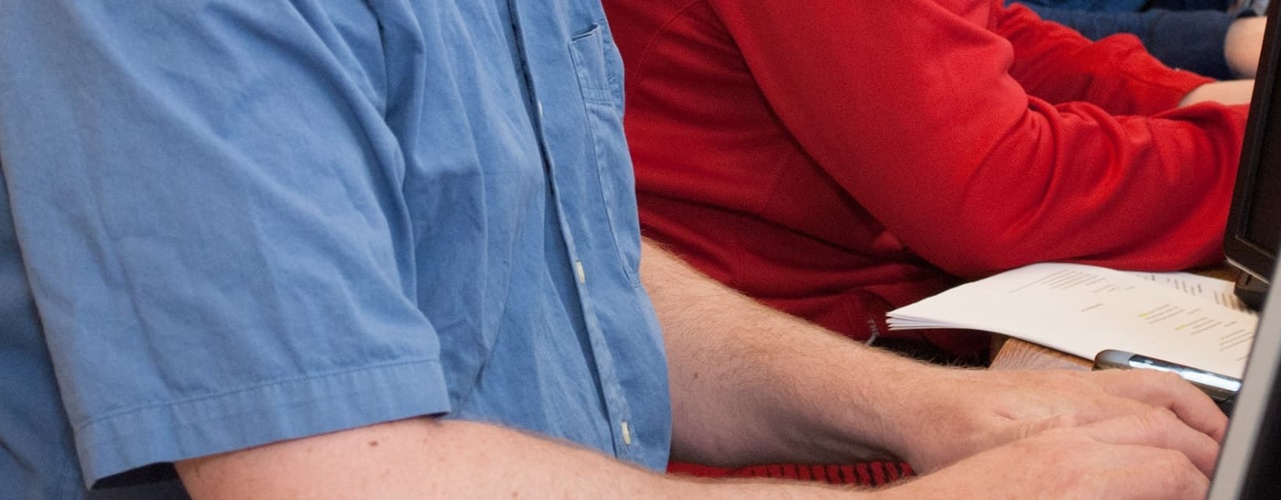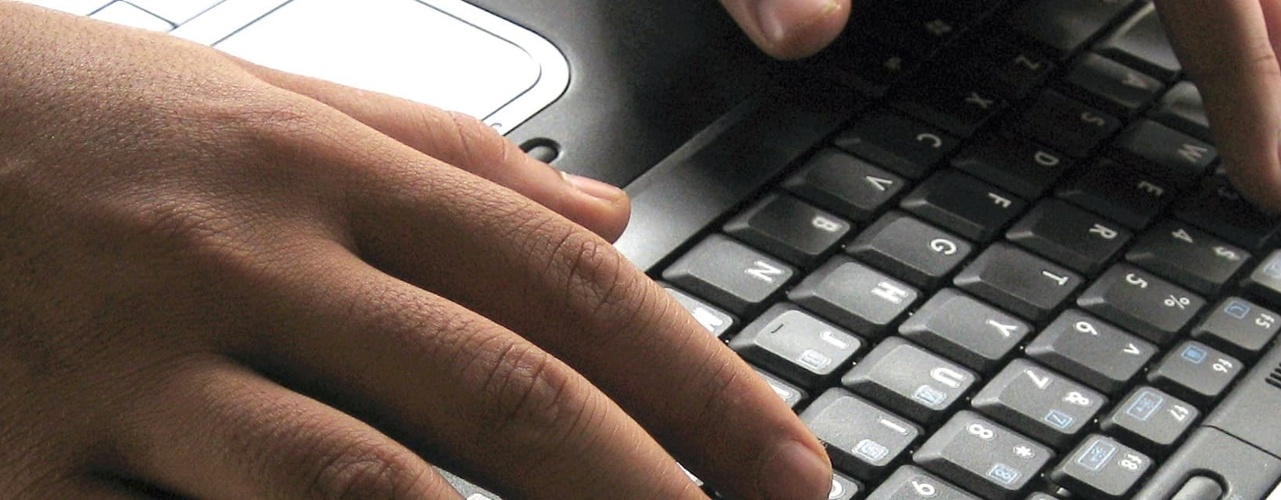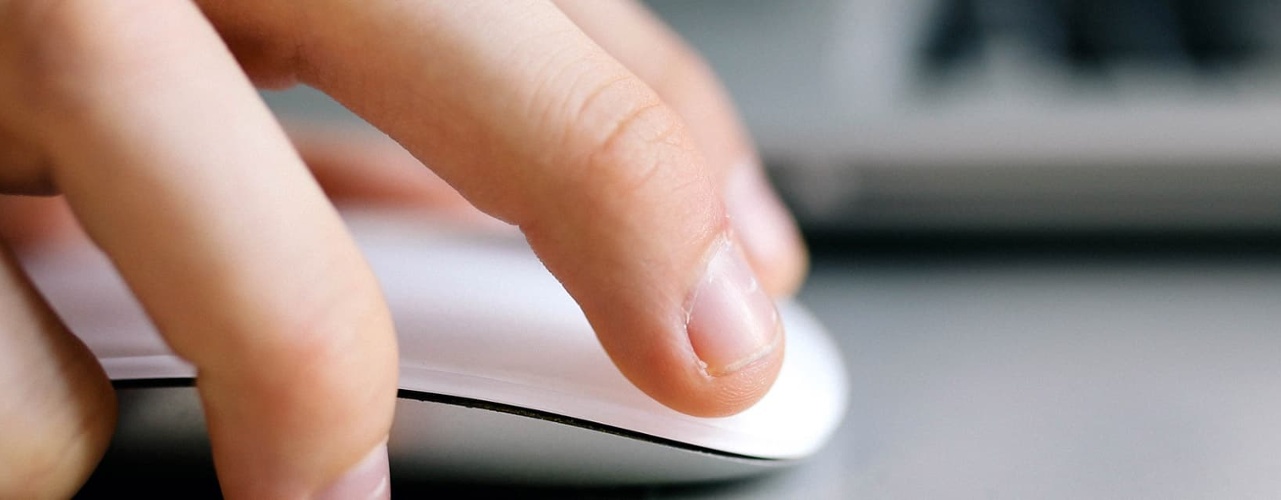
Information Technology
Illegal Downloading
Illegal digital music downloading is a problem which plagues many college campuses across the country. The University of Maine at Fort Kent wishes to ensure that students are well-educated in the legalities that come with downloading digital music, and the circumstances they face when breaking copyright law.
For information on how UMFK handles Illegal Downloading please read over the Illegal File Downloading and Bandwidth Use Policy.
The RIAA webpage provides a great list of do's and don'ts of downloading material on the internet. Below are just a few FAQs pulled from their site that may be most important to you:
- Is uploading music from a CD that you own onto an Internet site for other users to download a violation of copyright law?
- Isn't it within my First Amendment right to post recordings to my site for other people to download?
- What can happen to me if I am caught infringing a copyright law?
- Is it illegal to post music on a website for downloading even if I don't charge for it?
- If a website doesn't display a copyright notice, is the music still copyrighted or is it okay to reproduce, distribute, or download?
- Does moving an unauthorized music site to a server outside the U.S. make it legal?
- Is it illegal to link to other sites that have unauthorized sound files, even if my own site doesn't offer any?
Is uploading music from a CD that you own onto an Internet site for other users to download a violation of copyright law?
Yes. Owning a CD means you own one copy of the music, and the U.S. record industry believes you should be able to make whatever personal use you choose. For example, you may make a compilation recording (on tape or on a CD) to use in the car or while exercising. But it's a very different matter - and clearly neither legal nor fair - to make a copy of that CD or even one song available on the Internet for others to take.
The sound recording copyright holders own the music itself, and have a number of rights under current federal law that include the right to control the reproduction, distribution, adaptation, and various digital transmissions of their works. Therefore,
- Creating unauthorized MP3 sites by copying sound recordings to a server for other people to download and/or offering such recordings for download is a violation of copyright law.
- Making tapes or CDs of recordings downloaded from the Internet without permission from the copyright owner is a violation of copyright law. Read more about copyright law.
Isn't it within my First Amendment right to post recordings to my site for other people to download?
The First Amendment does not grant a right to infringe copyrighted works.
The RIAA and the music industry as a whole are dedicated to protecting the First Amendment rights of Americans, including the rights of artists to be heard, even if their lyrics are offensive to some. If you are interested in learning about First Amendment issues that are currently facing artists, check out the Resources and Learning page.
What can happen to me if I am caught infringing a copyright law?
If found guilty of copyright infringement, federal law provides for civil remedies that may include substantial monetary damages and liability for attorney fees incurred in bringing an action. Criminal penalties may be imposed if someone willfully infringes a copyrighted work, even if no profit is derived from the activity. Thus, people who barter, trade or even give away copies of infringing works may still be criminally liable and subject to prosecution.
The No Electronic Theft (NET) Act specifically outlaws this activity on the Internet. Criminal penalties for copyright infringement include up to six years imprisonment, up to $250,000 in fines, or both. Students may also be subject to disciplinary action at their school, by the school's own faculty, if it is determined that school computer policies have been violated. Read more about copyright law.
Is it illegal to post music on a website for downloading even if I don't charge for it?
Yes. The question of whether or not you are charging does not impact the answer to whether or not you are violating copyright law. If you don't hold the copyright, you can't sell or even give away unauthorized copies of the sound recording without permission. In addition, the No Electronic Theft ("NET") Act, which amended Section 506 of the Copyright Act, clarified that even if a site barters or trades infringing materials and doesn't charge or otherwise make a profit there still may even be criminal liability. Additionally, you may face civil liability, including statutory damages of up to $150,000 per copyright infringement, even if you're just giving away the files.
If a website doesn't display a copyright notice, is the music still copyrighted or is it okay to reproduce, distribute, or download?
In the U.S., almost every work created privately and originally after March 1, 1989, is copyrighted and protected whether or not it has a notice.
Does moving an unauthorized music site to a server outside the U.S. make it legal?
U.S. law may well apply when the uploading and/or downloading takes place in the United States, even if the server is physically located in another country. Additionally, the copyright laws of foreign countries are, in many cases, similar to those in the United States. U.S. trade law allows the Office of the United States Trade Representative to take action against those countries that fail to provide adequate and effective copyright protection and market access.
Is it illegal to link to other sites that have unauthorized sound files, even if my own site doesn't offer any?
Liability for copyright infringement is not necessarily limited to the persons or entities who created (or encoded) the infringing sound file. In addition to being directly liable for infringing conduct occurring via the site, a linking site may be contributorily or vicariously liable for facilitating copyright infringement occurring at the sites to which it links.
Contributory liability may be found where a person, with knowledge of the infringing activity, induces, causes, or materially contributes to the infringing conduct of another. A link site operator may be liable for contributory infringement by knowingly linking to infringing files.
Vicarious liability may be imposed where an entity has the right and ability to control the activities of the direct infringer and also receives a financial benefit from the infringing activities. Liability may be imposed even if the entity is unaware of the infringing activities. In the case of a linking site, providing direct access to infringing works may show a right and ability to control the activities of the direct infringer and receiving revenue from banner ads may be evidence of a financial benefit.
For additional information on copyright in relation to downloading please visit respectcopyrights.org.



